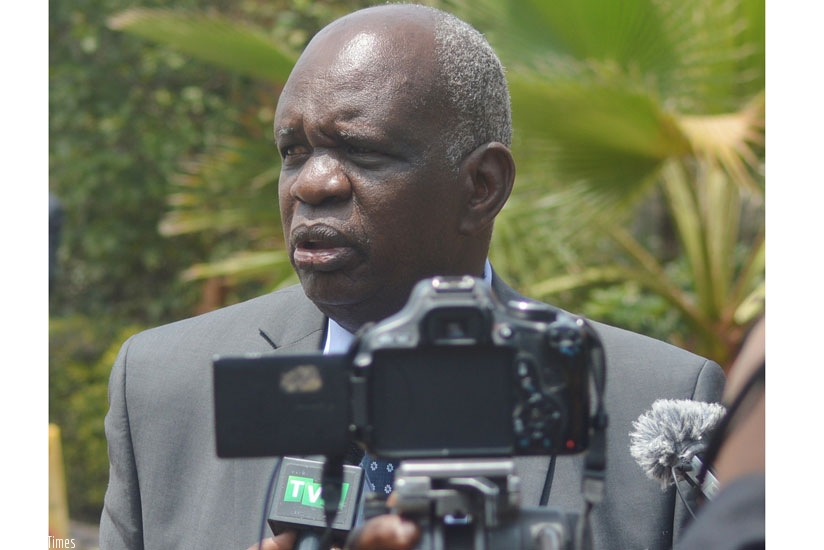The Teachers’ savings and credit cooperative, Umwalimu Sacco, is set to increase its 2016 budget to Rwf52.9 billion, up from Rwf49.6 billion last year.


The Teachers’ savings and credit cooperative, Umwalimu Sacco, is set to increase its 2016 budget to Rwf52.9 billion, up from Rwf49.6 billion last year.
Speaking at the cooperative’s general assembly on Sunday, Joseph Museruka, the managing director, said part of the money would be spent on construction of their new building and buying new equipment.
"The cooperative is expanding and its infrastructure should also be expanded to match increasing clients. The more the company grows, the more expenditures increase,” he said.
Jean Marie Vianney Nzagahimana, the cooperative chair, reaffirmed commitment to improving teachers’ welfare while investing in different businesses.
"Teachers should not rely on their salary alone. They need to invest in different businesses that can increase their monthly incomes and the cooperative is ready to facilitate them get low interest loans easily,” Nzagahimana said.
He urged teachers to open up their minds and start thinking of different businesses as the cooperative is eager to help them through the new project called ‘Gira indi nkunga Mwalimu’.
Teachers pay 11 per cent on Umwalimu Sacco loans while banks charge between 14 and 17 per cent.
Several teachers who attended the meeting hailed the cooperative for uplifting their economic status.
"Teachers are not suffering compared to previous years. There is hope for the future as they carry out different businesses to supplement their meager salaries. Many have benefited from the cooperative’s loans and they expect to benefit more as long as they use the loans properly,” said Alexis Nzagahimana, the head of Umwalimu SACCO board in Burera District.
According to a report, presented at Sunday’s meeting, the cooperative has collected over Rwf1.4 billion profit in 2015 something the members appreciated.
Next year, the cooperative projects a profit of over Rwf1.6 billion after tax.
Umwalimu SACCO started in 2009. At least 80 per cent of the cooperative’s budget goes to teachers loans.


